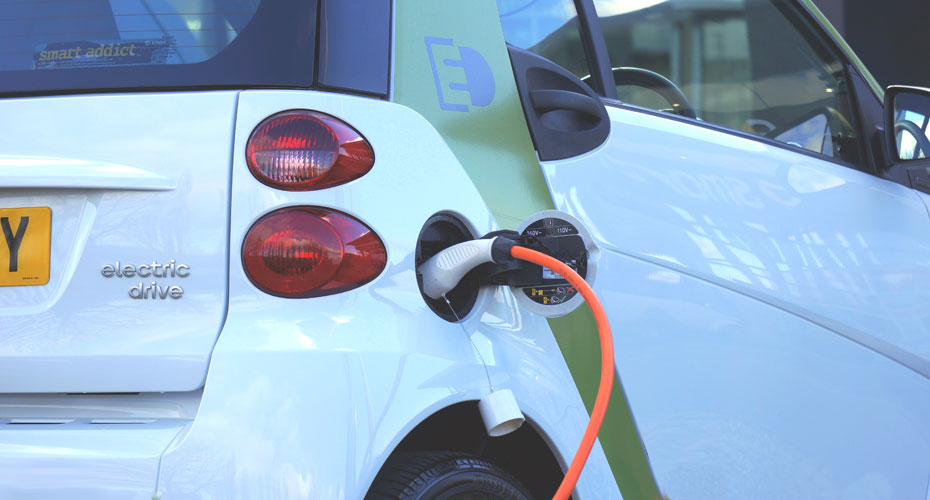Exeter Energy, Environment and Economy (4E)
The Exeter Energy, Environment & Economy (4E) research group works in a transdisciplinary way to develop models and tools to assess the environmental, economic and social sustainability of a wide range of sociotechnical systems. The overarching aim is to help governments, industries and the public make more informed decisions with regard to sustainability. The group is based in the Environment and Sustainability Institute (ESI).
Research areas
Key topics include:
- Assessing the sustainability of bioenergy pathways, electricity generation technologies, transport options, water systems and resource recovery processes using Life Cycle Assessment (LCA)
- Developing novel spatiotemporal dynamical Life Cycle Assessment methods
- Assessing the impact of energy systems on ecosystem services
- Modelling the Water-Energy-Food-Environment (WEFE) Nexus
- Modelling the energy and transport systems
- Developing new business models based on Circular Economy and Natural Capital
Group members
- Research lead: Dr Xiaoyu Yan - Senior Lecturer
- Dr Victor Kouloumpis – Senior Research Fellow on the WEFWEBS, CEReS, ICE, ExeMPLaR and CLIP projects.
- Yang Qu - PhD student
- Dr Xiaocheng Hu – Research Fellow on the ExeMPLaR and Met4Tech projects
- Dr Maru Correa – Research Associate on the ExeMPLaR and NEXT-AG projects
- Yang Qu – PhD student
- Xiang Li – PhD student
- Lin Zheng – PhD student
- Yinchen Liu – PhD student
- Hongli Liu – Visiting PhD student from China University of Geosciences
Current projects
Securing a sustainable supply of water, energy and food while at the same time protecting the environment is a key global issue. Traditionally, policymaking for each sector (food, water, energy and environment) has been designed largely in isolation, without consideration of the synergies and trade-offs between them, leading in some cases to overexploitation of natural resources, increasing competition between sectors and negative externalities. This has been the case for the agricultural expansion planned in Ecuador and Peru during the last decades to take advantage of a growing international market.
By unpacking synergies and trade-offs through a WEFE (Water-Energy-Food-Environment) nexus approach, the aim of the RCUK-CONICYT funded NEXT-AG project is to provide policymakers in those countries with the needed evidence base that will allow them to develop new coordinated policies and programmes for increasing resilience and promoting sustainable economic growth in the context of increasing national and global food demand.
Focusing on Ecuador and Peru, this project will:
- Study the implications of increasing food production and associated policies on availability of water, energy and other natural resources for other sectors and the environment;
- Develop an integrated modelling framework in collaboration with stakeholders to evaluate how current and future policies will impact on the WEFE nexus for food provision services and the trade-offs in the context of increasing food demand and exports to international markets;
- Inform future WEFE policies in the countries under study, leading to the sustainable use of natural resources and economic growth.
Contact: Dr Xiaoyu Yan
The Circular Economy (CE) is a revolutionary alternative to a traditional linear, make-use-dispose economy. It is based on the central principle of maintaining continuous flows of resources at their highest value for the longest period and then recovering, cascading and regenerating products and materials at the end of each life cycle. Metals are ideal flows for a circular economy. With careful stewardship and good technology, metals mined from the Earth can be reused indefinitely.
The TechMet consortium brings together the Universities of Exeter, Birmingham, Leicester, Manchester and the British Geological Survey who are already working on how to improve the raw materials cycle, manufacture goods to be re-used and recycled, recycle complex goods such as batteries and use and re-use equipment for as long as possible before it needs recycling. One of our first tasks is to track the current flows of techmetals through the UK economy, which although fundamental, is poorly known.
The Centre will conduct new interdisciplinary research on interventions to improve each stage in the cycle and join up the value chain - raw materials can be newly mined and recycled, and manufacturing technology can be linked directly to re-use and recycling. The environmental footprint of our techmetals will be evaluated. Business, regulatory and social experts will recommend how the UK can best put all these stages together to make a new techmetals circular economy and produce a strategy for its implementation.
Circular and Low Impact Processed Food (CLIP) is a project funded by ERDF through the Agritech Cornwall programme led by The Cornwall College Group/Duchy College.
Food production is one of the largest contributors to greenhouse gas emissions and yet the carbon footprint of most processed food products is poorly understood. Our aim is to develop a carbon impact assessment tool for processed foods, using the Cornish Pasty as a pilot.
The tool adopts a life cycle assessment (LCA) based approach to examine the entire food supply chain and quantify consumption of resources such as energy and water and generation of environmental impacts such as carbon emission.
Contact: V.Kouloumpis@exeter.ac.uk
The rare earth elements (REE) are widely used in modern technologies varying from wind turbines to hard disk drives, low energy lighting to electric cars. They are recognised as critical raw materials by the European Commission and other authorities, because of concerns about security of supply.
Recent work has highlighted neodymium (Nd) and the heavy rare earth elements (HREE) as being most at risk of supply disruption in the near future. The major challenge is to develop new Nd and HREE deposits that can be exploited in an environmentally-friendly and economically viable way, so that the use of REE in new technologies can continue to expand.
This PhD project is part of the NERC-funded SoS RARE project and aims to assess and compare the environmental sustainability of new REE extraction and recovery processes.
Contact: Robert Pell
The manufacturing of devices for green energy production and storage in Europe is a fast-growing sector. However, 95 % of the main raw materials needed for green energy devices are imported. For industrial development to be sustainable, domestic deposits need to be secured. Lithium–caesium–tantalum and niobium–yttrium–fluorine pegmatites are quite common in Europe, but they are difficult to explore because most are buried, small and clustered.
The EU-funded GREENPEG project aims to develop and test high-level exploration technologies and algorithms that will be integrated and converted into flexible, ready-to-use toolsets for the identification of buried pegmatite ores. The project's results will increase European raw material resources, enhance databases on raw materials and improve the competitiveness of EU companies.
Global Food Security, Climate Change and Resilience: An International Perspective (CUHK-Exeter Joint Centre for Environmental Sustainability and Resilience (ENSURE), £135K from Exeter and HK$1M from CUHK) Co-I & WP leader
ExeMPLaR is a Multidisciplinary Plastics Research Hub led by the University of Exeter. The hub will use the principles of the circular economy to address the accumulation, impact and costs of plastics in the environment, whilst maintaining applications for multiple high value purposes.
The initial 18–month programme will address both the causes of the problems and efforts to solve them, rather than just treating the symptoms. This research effort connects technical solutions, human behaviours, social, environmental and economic systems with circular economy principles.
A transdisciplinary team of 21 University of Exeter researchers has combined to bring the best available evidence base to underpin the design of more effective regional plastics systems.
The EU Interreg-funded Intelligent Community Energy (ICE) project is dedicated to improving, developing and promoting new smart solutions for energy production, storage and consumption for an island or remote community. Lead by Bretagne Developpement Innovation, nine organisations have partnered up to tackle the challenge of energy vulnerability in areas located at the end of the distribution network and reliant on fossil fuel.
Two pilot sites – the Ushuant Island in Finistere and the University of East Anglia campus in Norfolk – have been selected to test proposed solutions and to develop a methodology to design and implement a smart grid. Demonstration will aim to find the right energy mix adapted to the needs, available resources and production and consumption patterns of the pilot communities. By the end of the project, these new solutions will be included in a full commercial offer that will be proposed to other insular or peripheral territories facing the same energy challenges, in the Channel area and beyond.
The role of our group in this project is to evaluate and compare the environmental implications of various energy system solutions proposed to support decision making by key stakeholders and local communities.
Contact: Dr Victor Kouloumpis
The current mining paradigm promotes extraction from large ‘world-class’ deposits that have required innovations in mining techniques to deal with low grades, large infrastructure to deal with high throughputs and large feasibility studies to prove long-term commercial viability. However, there are problems for critical raw materials that are produced in small quantities relative to traditional metal commodities because the potential return on investment is too low.
The EU H2020-funded IMP@CT project proposes a solution that develops a new switch on-switch off (SOSO) mining paradigm to improve the viability of many critical metal and other small complex deposits.
The whole systems approach that we have adopted to realise the SOSO mining paradigm centres around technological innovations in mining equipment design and mine planning that would reduce the feasibility studies required, throughput of extracted material, infrastructure, land use, resource consumption and waste. Successful business models for SOSO mining require that mining and processing technologies can be adapted to multiple deposits and commodities.
The role of our group in this project is to design a renewables-based energy supply system for the mobile and modular mining plant to maximise its environmental benefits.
Contact: Dr Xiaoyu Yan
The EG4B project is jointly funded by the European Structural and Investment Funds. EG4B will work with Cornwall and Isles of Scilly’s Small and Medium Enterprises (SMEs) to generate environmental and economic growth.
It will work with new and existing businesses, adopting an ‘ecosystem services’ and ‘circular economics’ approach to identifying opportunities for increased productivity and economic resilience through improvements in resource efficiency. Additionally, it will provide opportunities for delivering business-led environmental growth and new opportunities for product and service development in response to regional environmental challenges.
The role of our group in this project is to collect and analyse data on resource use and waste generation from businesses that will feed into the development of a toolkit. This toolkit is expected to help businesses better understand their dependence and impact on natural capital and to identify opportunities for value creation from growing the environmental assets.


